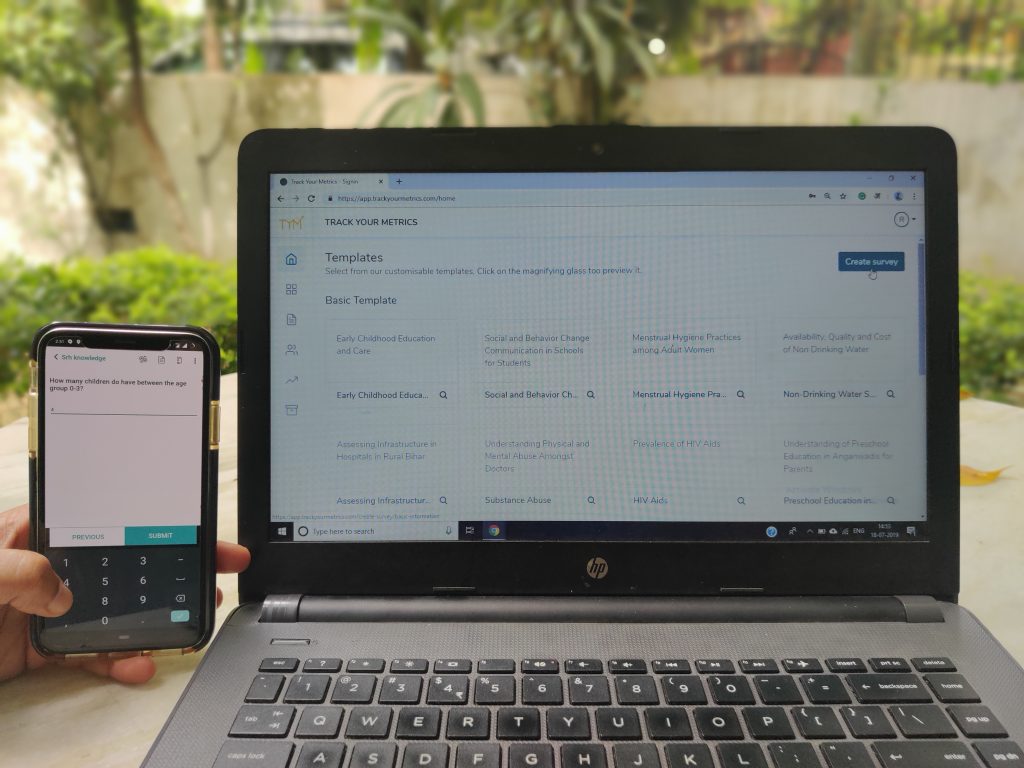India has over 31 lakhs not for profits working at the grassroots along with donors and funders, collaborating towards eradicating key social issues in sectors such as health, education, water, hygiene, sanitation, livelihood, women empowerment and community development, among others. They need funds to carry out an intervention thereby bringing about a change in society. However, due to lack of funding and a competitive funding market, organizations financially feel pressurised to present tangible proof of impact of their programs. This exercise is further plagued with concerns such as absence of research capacity, lack of field-tested, standardised surveys and the consequent lack of data and reliable outcomes. Small NGOs in particular face acute funding shortages and get trapped in this vicious cycle.
How can these NGOs and small organisations distinguish themselves from one another and convince funders and donors of their impact? And how can funders and donors get an absolute idea of the credibility of small organisations and NGOs?
Monitoring and evaluation using digital tools
Digitisation can bring about a disruptive change in the development sector by helping organisations become accountable, report on standardised metrics and subsequently prove to be conducive to funding. In recent times, owing to a massive advancement in technology, integrating ICT into the Monitoring and Evaluation program can boost the efficiency of the project by reducing costs, increasing accuracy, expanding outreach and improving insights.
Monitoring and evaluation is a continuous process involving data collection, observation, analysis and estimating to what extent the project has met its objective. When monitoring and evaluation is carried out in an effective manner, it aids in strategic decision making, both during and after the project implementation. It reaps benefits for various stakeholders of the organisation.
Track Your Metrics
A simple technology-based solution, Track Your Metrics is a self-reporting tool that enables NGOs and funders to collect data, build metrics, monitor projects and measure the concurrent impact of their work at ~ 0 unit cost.
Track Your Metrics caters to the needs of small NGOs lacking research capacity, governments looking to monitor schemes and funders, donors & CSR wings looking for a uniform way of inducting NGOs. Track Your Metrics enables its users to conduct assessments using an unskilled workforce i.e. volunteers at small not for profits thereby resulting in data-driven decision making.
An intuitive web platform coupled with an android application, Track Your Metrics allows for survey formulation, data collection, data visualisation and report generation.
-
Survey Formulation: The web platform offers an automatic do-it-yourself survey formation facility where users can access questions from pre-packaged surveys, drawn from the works of sectoral leaders, in the areas of education, health, and WASH in order to create their own unique survey.
-
Data Collection: Collect data in local languages with the help of android devices in remote, offline areas. Responses get synced back to the platform when connected to the internet.
-
Data Visualisation: View your survey responses in the form of various chart types – pie charts, bar graphs, histograms etc.
-
Report Generation: Prepare a report, customise it – insert images, charts, tables, text etc., download it and share it with potential donors or grant makers to enable accountability.
Track Your Metrics encourages data to be the basis of stronger and sustainable institutions thereby strengthening research capacity, easens internal monitoring and evaluation, remediation of problem areas, maintenance of progress reports and ease in fund seeking.
With a vision to herald a revolution in the development sector with its cost effective technology and consistent solutions, Track Your Metrics is on its way to set a precedent in the field of data collection, with its one stop integrated platform. For more information, visit www.trackyourmetrics.com or contact [email protected].
Carpe Datum!
For more articles, visit OD Blog.

